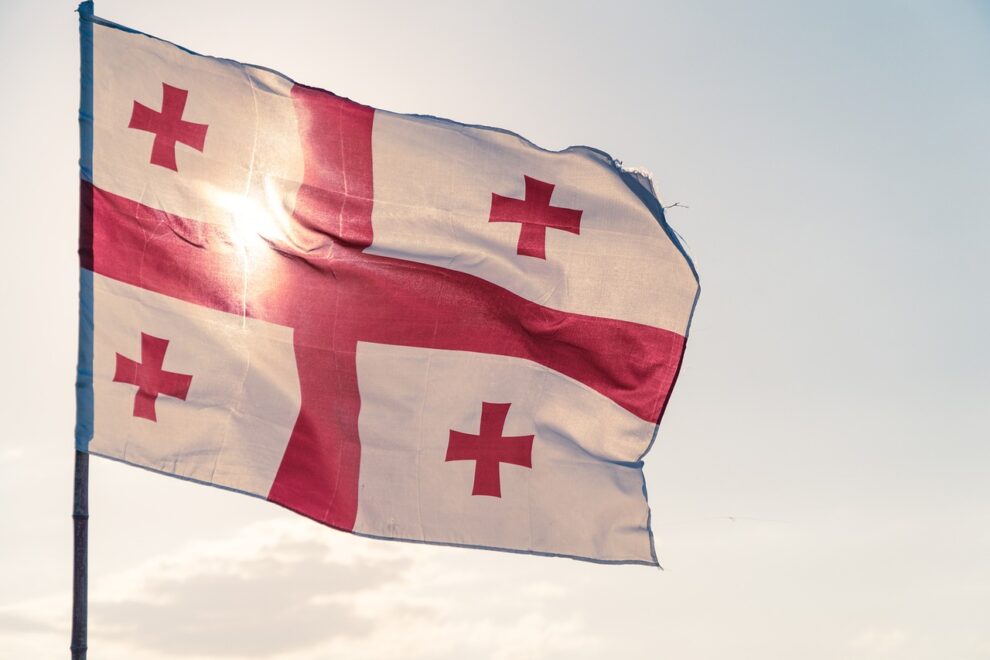Georgian lawmakers gave a first green light Wednesday to a controversial “foreign influence” law that has sparked mass street protests over concerns it would undermine Tbilisi’s European aspirations.
The bill, which 83 ruling Georgian Dream party MPs backed after its first reading, has been criticised as mirroring a repressive Russian law on “foreign agents” used there to silence dissent.
Opposition deputies boycotted the vote, and on Monday and Tuesday night thousands took to the streets to protest the draft law.
In chaotic scenes past midnight, Georgian riot police chased demonstrators in the labyrinth of narrow streets near parliament, beating them and making arrests, an AFP journalist saw.
Several local media outlets said police had attacked their journalists.
Another protest is scheduled for Wednesday evening.
– ‘Not in line with EU values’ –
Prime Minister Irakli Kobakhidze — who is known for repeated anti-Western rhetoric while insisting on his committment to Georgia’s Euro-Atlantic trajectory — said the law would boost financial transparency of NGOs funded by Western institutions.
He then accused some of those civil groups of attempting to drag Georgia into the Ukraine war and stage a revolution.
“Forward, with dignity, to Europe!” he said after accusing Western leaders of opposing the law without offering arguments against it.
But European Union foreign policy chief Josep Borrell and enlargement commissioner Oliver Varhelyi called Wednesday’s vote in the Georgian parliament a “very concerning development.”
“Final adoption of this legislation would negatively impact Georgia’s progress on its EU path. This law is not in line with EU core norms and values,” they said in a joint statement.
In December, the EU granted Georgia official candidate status. But it said Tbilisi would have to reform its judicial and electoral systems, reduce political polarisation, improve press freedom and curtail the power of oligarchs before membership talks could be formally launched.
President Salome Zurabishvili — who is at loggerheads with the ruling party — said the measure contradicted “the will of the population” and denounced it as “a Russian strategy of destabilisation.”
Washington has also voiced concerns that the law would “derail Georgia from its European path”.
– ‘Repressive legislation’ –
If adopted, the bill would require any independent NGO and media organisation receiving more than 20 percent of funding from abroad to register as an “organisation pursuing the interests of a foreign power”.
Amnesty International urged Georgia’s authorities to “immediately stop their incessant efforts to impose repressive legislation on the country’s vibrant civil society.”
A similar bill targeting “foreign agents” was dropped last year after mass protests outside the parliament building in Tbilisi, during which police used tear gas and water cannon against demonstrators.
In a surprise announcement ahead of crucial parliamentary elections in October, seen as a key democratic test for the Black Sea country, the ruling Georgian Dream party re-introduced the draft law to parliament earlier this month.
The bill still needs to pass votes following its second and third readings — and get past a highly likely presidential veto.
But Georgian Dream holds a commanding majority in the legislature, allowing it to pass further stages and vote down a presidential veto without the backing of any opposition MPs.
A former Soviet republic, Georgia has sought for years to deepen relations with the West, but the current ruling party is accused of trying to steer the Black Sea nation toward closer ties with Russia.
Once seen as leading the democratic transformation of ex-Soviet countries, Georgia has in recent years been criticised for perceived democratic backsliding.
